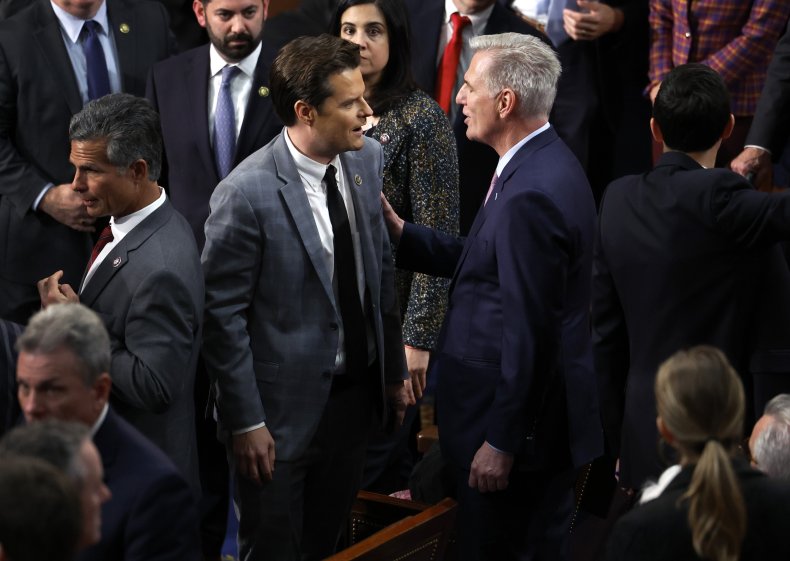Debate Erupts Among Republicans Over ‘Motion to Vacate’ Rule for Speaker Removal
A contentious issue is dividing Republicans as they consider the future of the “motion to vacate” rule, which allows a single member, such as Rep. Matt Gaetz (R-Fla.), to initiate a vote to oust the Speaker, currently Kevin McCarthy (R-Calif.). This rule has come under scrutiny after eight GOP members joined with Democrats to remove McCarthy, creating uncertainty over who should replace him.
A group of 45 House Republicans, representing more than a fifth of the GOP conference, penned an open letter advocating for changes to the “motion to vacate” rule. They expressed frustration over the eight members who aligned with Democrats, asserting that their majority should not be influenced by an alliance between the “chaos caucus” and the minority party.
The signatories, including Rep. David Joyce (R-Ohio) and Rep. Dusty Johnson (R-N.D.), called for fundamental changes to ensure the success of the next Speaker. However, the specific alternative standard remains uncertain.
Rep. Carlos Gimenez (R-Fla.) has suggested raising the threshold to 50 percent of the House Republican Conference for Speaker removal. He emphasized the need for Speaker candidates to commit to reforming the “Motion to Vacate.”
Despite calls to modify the rule, some hard-line conservatives support keeping the one-member threshold, emphasizing its importance as an institutional tool for individual members.
The Club for Growth, a prominent conservative group, also cautioned against altering the rule, vowing to oppose any Speaker candidate who supports returning to previous standards.
The “motion to vacate” rule has a complex history, with a one-member threshold in place for most of its existence. Its significance was renewed after the events of last week when McCarthy was nearly removed. Both candidates for House Speaker, Steve Scalise (R-La.) and Jim Jordan (R-Ohio), have emphasized that the decision on this threshold should be resolved within the House Republican Conference, potentially requiring changes to House rules through a floor vote.
